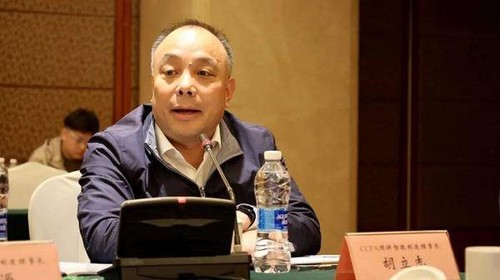"Digitalization is the only way for traditional industries to improve efficiency and quality of development, and it has become the consensus of the industry to promote the transformation and upgrading of concrete industry to digitalization and intellectualization." Recently, the Ready-Mixed Concrete Branch of China Concrete and Cement Products Association set up the "Ready-Mixed Concrete Intelligent Manufacturing Industrialization Working Committee", at which Hu Lizhi, deputy general manager of China Construction West Construction and chairman of Concrete Union Science and Technology, said. It is reported
that the working committee aims to further consolidate the strength of the industry, promote the transformation and upgrading of the ready-mixed concrete industry to a "light assets" model that takes into account technology, information and services, and enhance the level of digital development of the industry. Hu Lizhi, the executive director of the first Council, said that the current digital economy is booming and the digital transformation has brought new opportunities for the high-quality development of the concrete industry.

"For the concrete industry, to strengthen the determination and confidence of digital transformation," Hu Lizhi believes that the current concrete industry's understanding of digitalization and intellectualization is not deep enough, the traditional development model still has a strong inertia, the overall level of intellectualization of the industry is relatively low, the foundation is relatively weak, and the promotion efforts are still lacking.
In his view, the realization of the digital transformation of the concrete industry is not a temporary success. It needs to be based on the enterprise development strategy, systematic planning and long-term promotion. The focus is to focus on creating long-term value for customers. The digital transformation of the industry needs to establish a new customer-centered ecosystem.
At present, the concrete industry is facing many challenges, such as high accounts receivable, low efficiency of industrial synergy and so on. In this context, how can digitalization enable the industry to develop with high quality? In this regard, Hu Lizhi said that digitalization can mainly solve the efficiency problem for the industry. From the perspective of realization path, the first is to accelerate the realization of online and intelligent business around efficiency improvement, the second is to gradually realize the interconnection of industrial chain by building a digital platform, and the third is to innovate the operation and development mode through platform operation, so as to stimulate the new vitality of industry development.
"For example, we can gather high-quality productivity of the industry through the industrial digital platform, adopt the operation mode of platform + mixing station, provide new ways of market development for high-quality enterprises, and solve the problem of enterprise growth.". For example, we can explore the cash transaction mode through the industrial Internet platform, promote the transformation of traditional credit sales mode to cash transaction mode, and solve the problem of high accounts receivable in the industry. Hu Lizhi stressed that in the long run, digital tools and platforms can also help enterprises precipitate data assets, which will create greater value in the future.
Talking about the specific measures of digital transformation of concrete enterprises, Hu Lizhi believes that for industries and enterprises, the first thing to do is to change their thinking, establish a correct understanding of digitalization and digital transformation, and a new mode of thinking in line with the characteristics of the digital age, which is a prerequisite for digital transformation. Technology-driven, data-driven, change-driven and culture-driven. Only by actively embracing new technologies, opening up data links to improve the efficiency of enterprise operation and industrial chain synergy, systematically changing and redefining enterprise business and management, and creating agile and lean enterprise culture, can digital transformation be fundamentally realized.



 浙公网安备33010802003254号
浙公网安备33010802003254号